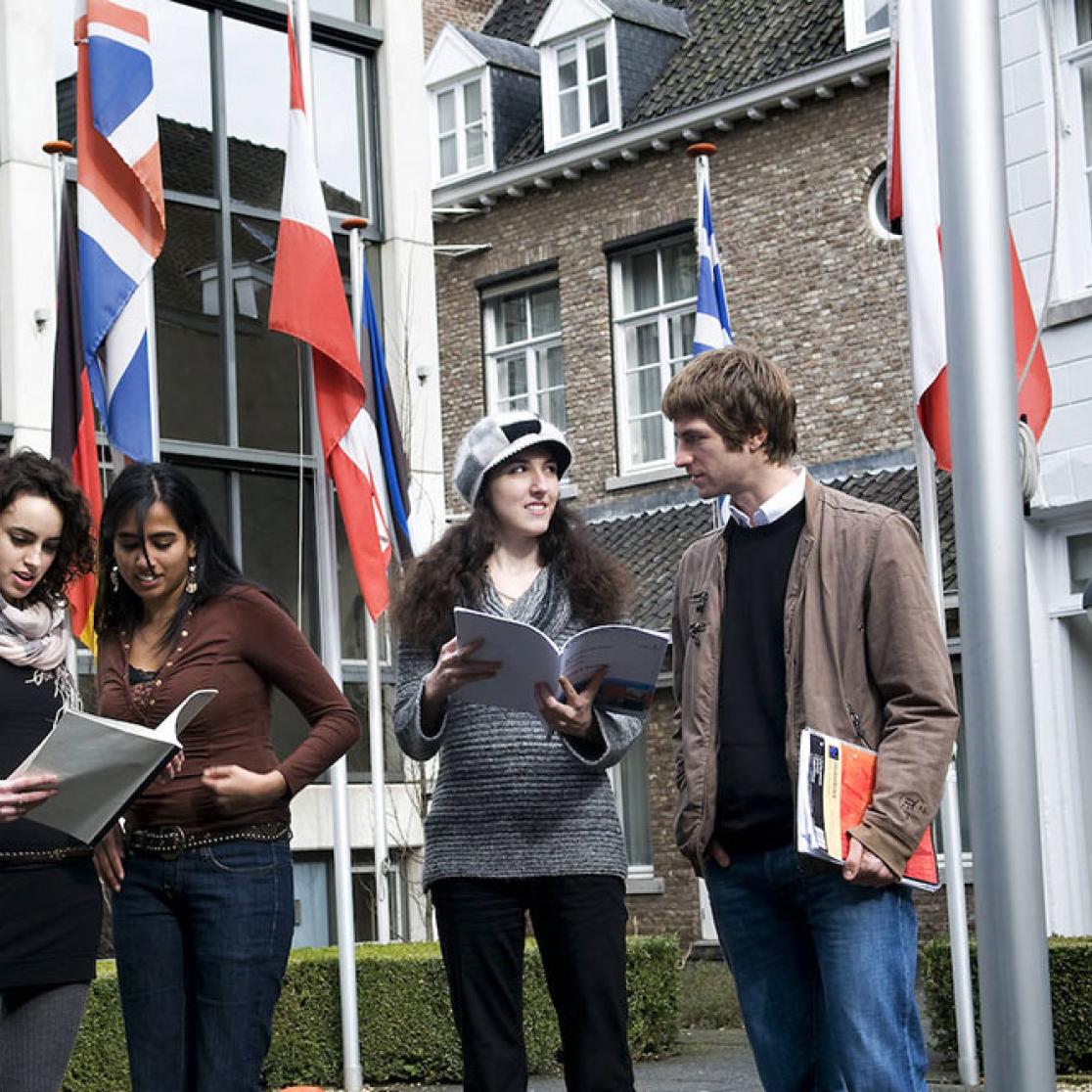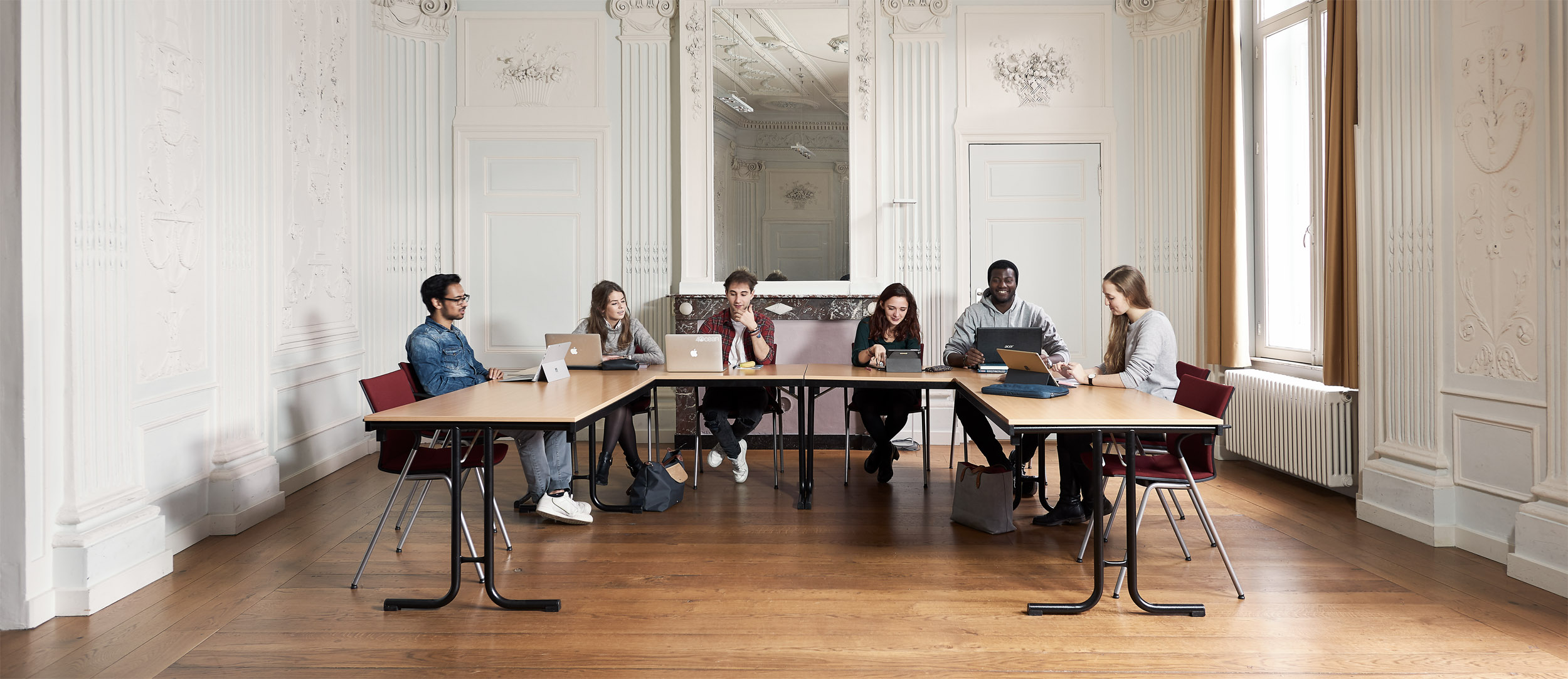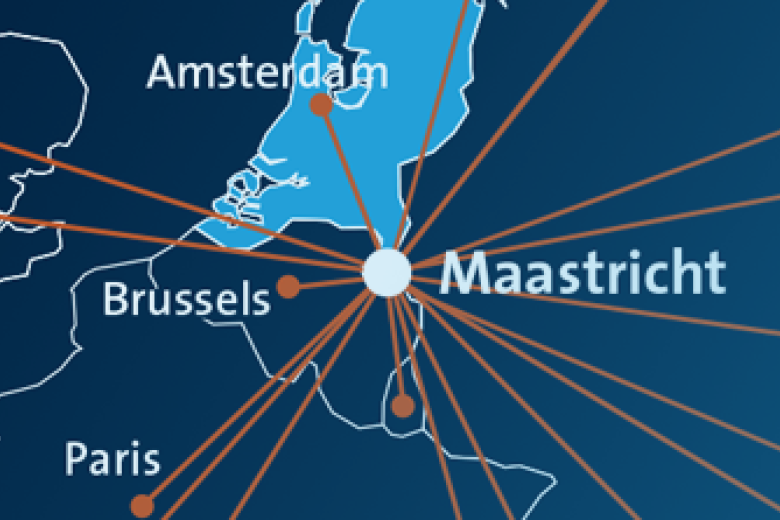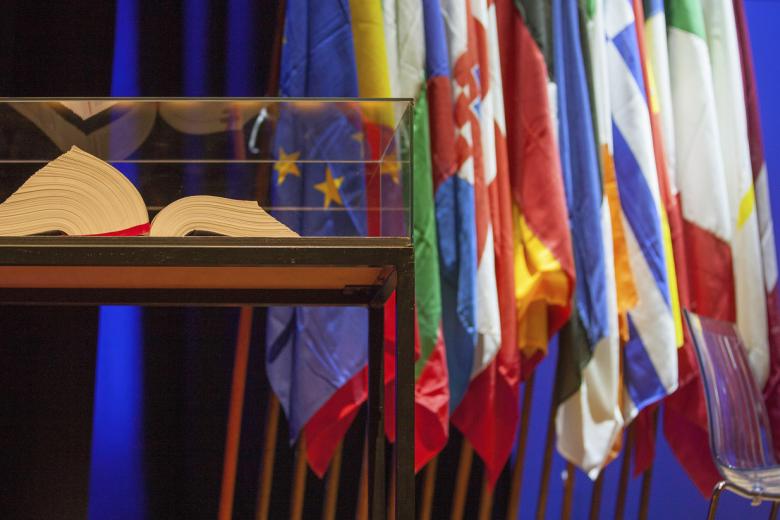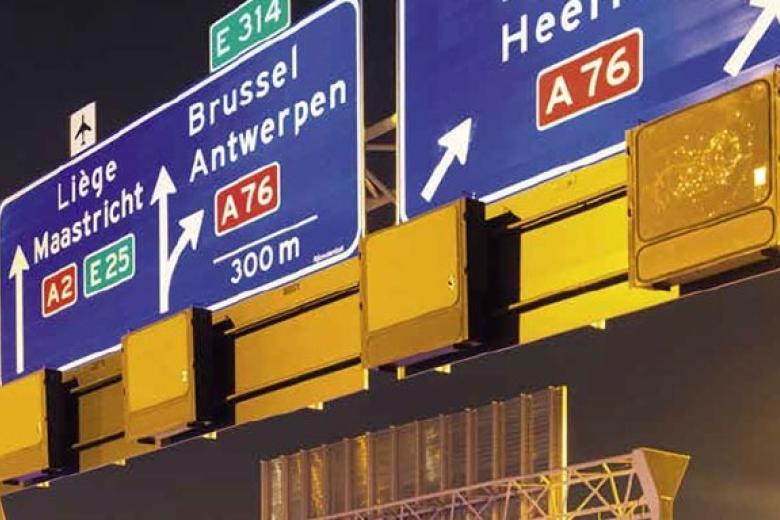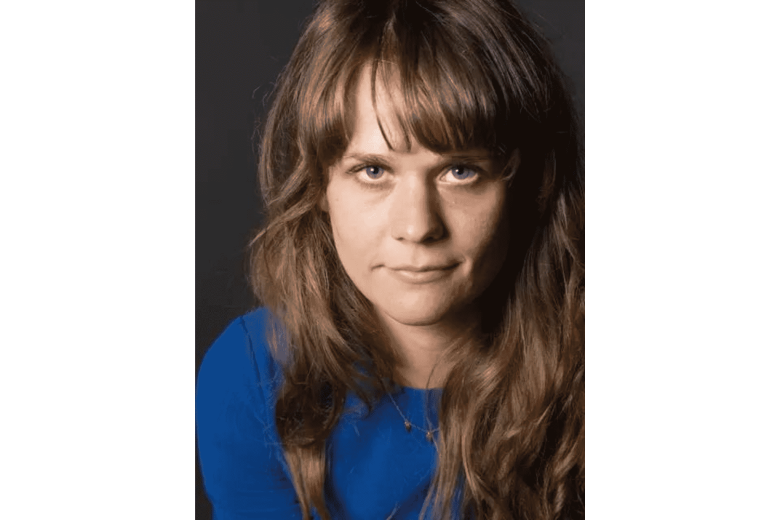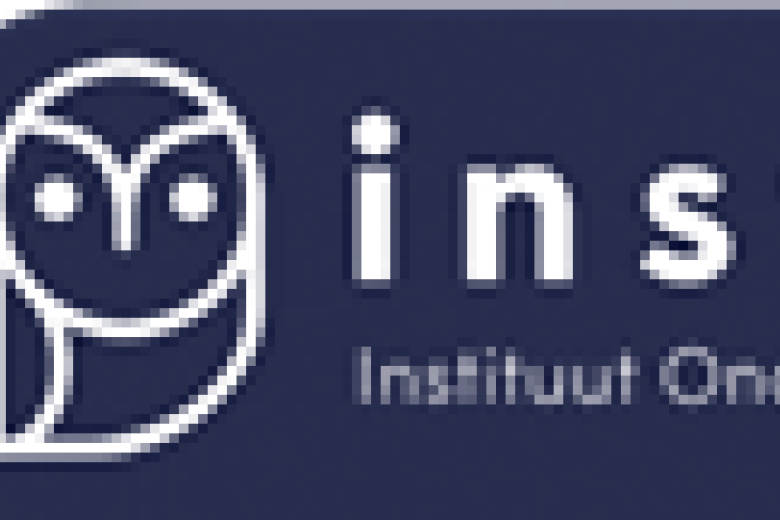UM in the world
The European university of the Netherlands
Maastricht University is a European network university with a global outlook and a solid base in our Euregion. We are, and always have been, firm advocates of the internationalisation of education and research, because we see the added value. Our unique focus prepares students for a career near or far. Only if we join forces in Europe, can we realise a sustainable and just society, abolish poverty and contribute to other Sustainable Development Goals.
Located in the heart of Europe, we are an open and accessible community where cultures, perspectives and ideas come together. We welcome talented people from all over the world with open arms, and vice versa, encourage students and staff to spend a period abroad.
More about UM's European profile as the leading European university in the Netherlands
Strengthening global opportunities and regional development
UM’s strategy for 2022-2026, ‘The European university of the Netherlands’, aims to further enhance the quality and scope of internationalisation of education and research. Based on our European identity we reach out to the world. In domains varying from law to health care, our education and research revolve around the question: What does Europe mean to the world and what does the world mean to Europe? Based on our experiences so far, and as well as in view of our unique international student and staff population, we can be characterised as a ‘living lab’ and expertise centre for Europe.
In our International Classroom we bring together students from all over de world for an enriching learning experience. Problem-Based Learning is an excellent method to bridge different perspectives, preparing students for their career. Our international networks and partnerships, exchange programmes and focus on cross-border mobility all contribute to the quality of our research and education. On four interdisciplinary Brightlands campuses we build together a better future for the region and the rest of the world.
Internationalisation at UM encompasses different levels of engagement, from regional to global. Our European signature is not only manifest in our study programmes and research. We are proud of several initiatives that have a European focus, such as our UM Brussels Hub, ITEM (Institute for Transnational and Euregional cross-border cooperation and Mobility), Studio Europa Maastricht, and YUFE. YUFE (Young Universities for the Future of Europe) shares a dedication to the European spirit, the aim to contribute to a more competitive, innovative and united Europe, and the ambition to help address today’s challenges.
UM in the world
Maastricht University (UM) is located in the Netherlands, but it operates across the globe.
This digital map shows the regions of origin of our students, PhD candidates and alumni. It also lists international partnerships and selected UM projects in different regions of the world.
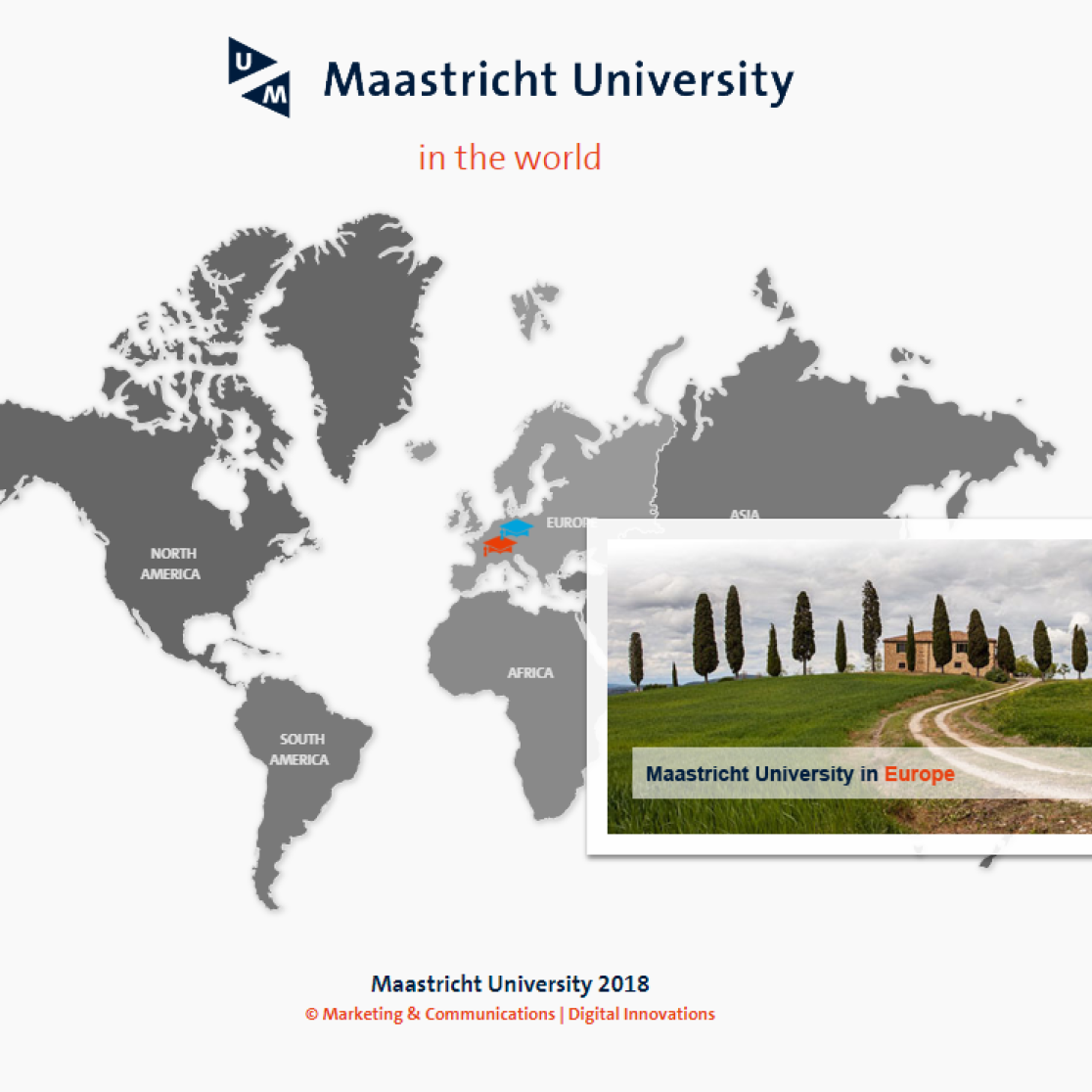
Partnerships & global outlook
At UM, we constantly seek out new opportunities to collaborate internationally and continue to intensify collaborations with our current partners in various networks. We participate in two leading European and international university networks: the Young European Research Universities Network (YERUN) and the Worldwide Universities Network (WUN). We currently have nearly 400 partners across the world.
Complementarity, geographical balance and ranking position are some of the key elements we look at when selecting our partners. As UM is located at the centre of an EU border region that is inhabited by 3.9 million people between Aachen, Hasselt, Heerlen, Maastricht and Liège, we are also actively collaborating with partner universities nearby.
Our MUNDO capacity-building projects, and several renowned research centres, provide UM students and staff with many additional opportunities for personal and professional development
More about our international partnerships in education & research
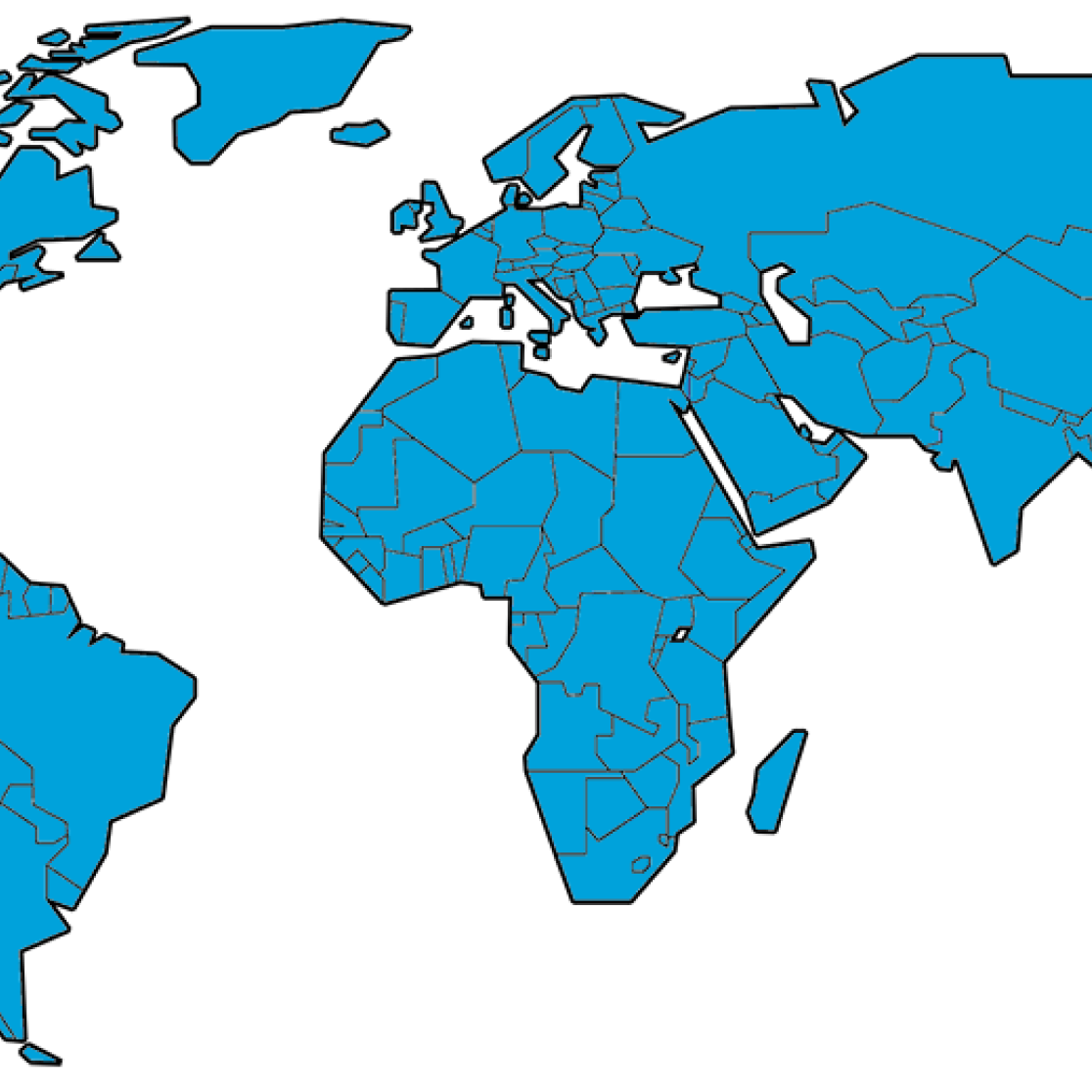
Internationalisation in education
Maastricht University has embraced the concept of the ‘International Classroom’, which has become a mindset amongst our students and staff. The International Classroom underlines the benefits in the learning process of our students when they work in small tutorial groups with people from different cultural backgrounds. By approaching problems from a variety of perspectives, students are acquainted with different ways of seeing things and that enhances the quality of the discussions. In this way, the International Classroom prepares students for the rapidly globalising labour market.
In addition, a large proportion of the educational programmes at Maastricht University are accessible to international students from all over the world, as many of them are offered in English. Many of our programmes also have an international or European focus, and all of our programmes include international issues and perspectives. We also offer joint and double degrees as well as a variety of exchange and preparatory programmes.
More about the International Classroom
More about our international programmes

Quality education
UM started internationalisation 30 years ago, so its quality has been well established. UM and Wageningen are the only Dutch universities that have been awarded the Certificate for Quality in Internationalisation.
According to ECA, internationalisation is embedded in the DNA of UM. This is not a static process. The UM institute for educational innovation EDLAB continues to work on the further development of the Problem-Based Learning model and the International Classroom. International students in the International Classroom perform better and have a positive effect on their fellow students, according to the Dutch organisation for internationalisation in education, Nuffic.
The quality of our education is also reflected in our rankings:
- 2 of our master's programmes are valued as excellent programmes (Keuzegids Masters 2023)
- 20 of our master's programmes perform well above the national average (Keuzegids Masters 2023)
- 6 bachelor’s programmes have been awarded the 'Topopleiding' [top-quality education] quality seal (Keuzegids Universiteiten 2023):
- Circular Engineering
- Econometrics and Operational Research
- Global Studies
- Medicine
- University College Maastricht
- University College Venlo
- 17 of our bachelor's programmes are ranked in the national top 3 (Keuzegids Universiteiten 2023)
- 6 UM programmes have earned a gold medal in EW De Beste Studies 2023 (Elsevier Magazine). To qualify for a medal, the course must score significantly better than other courses within the relevant sector on at least 4 of 11 components examined. Programmes that excel on 8 or more components receive a gold medal. For four or five exceptional scores, the programme gets bronze, for six or seven silver.
UM language policy
Due to the diverse composition of students, staff and researchers, and active participation of UM in mobility and research programmes, a multitude of languages are spoken at all levels in and around the UM campus. UM is a Dutch public university, where the official languages of instruction are Dutch and/or English, located in a multilingual (EU)regional context. Because of this, UM has an integrative and pragmatic approach to language, regarding it as a means to communicate, an instrument to acquire and share knowledge, and the base of (inter)cultural understanding and labour market participation.
A large number of our students are taking part in both free and paid language courses, and an increasing UM participation in initiatives and (European) projects focused on language learning, is bringing in new perspectives and training opportunities.
As the context of language usage is continuously evolving, additional steps will be taken to maintain and monitor language levels and further enhance the opportunities for language learning across the UM and the wider community.
The rules for the usage of language at UM can be found in the Code of Conduct for Language.
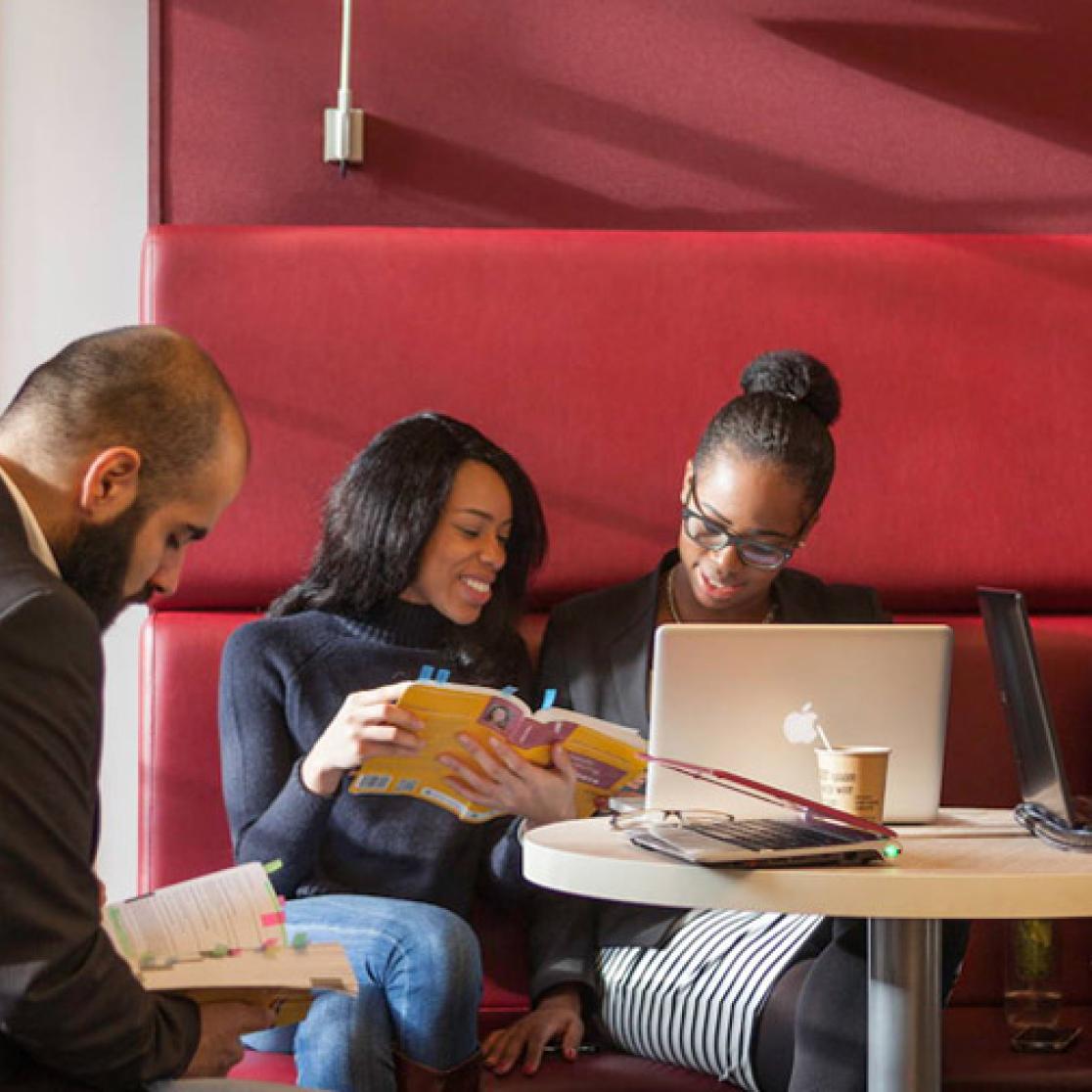
At the basis of the UM language policy is the concept of lifelong learning, through which three groups of UM stakeholders are actively encouraged to learn and use languages. These three stakeholder groups are:
- UM students
- UM employees
- UM alumni and members of the wider community
International dimension of UM research
Research done at Maastricht University focuses on topics of global relevance and is placed in an international context. Cooperation with renowned universities and research institutes in the region and beyond is a vital element of UM research. Just a few examples of UM’s international research centres are the Centre for European Research in Maastricht (CERiM), the Institute for Transnational and Euregional cross border cooperation (ITEM), the Aachen-Maastricht Institute for Biobased Materials (AMIBM) and Regenerative Medicine Crossing Borders (RegMed XB). With our global character, UM attracts academics and students that wish to pursue their research and education in an inclusive and international-oriented setting.
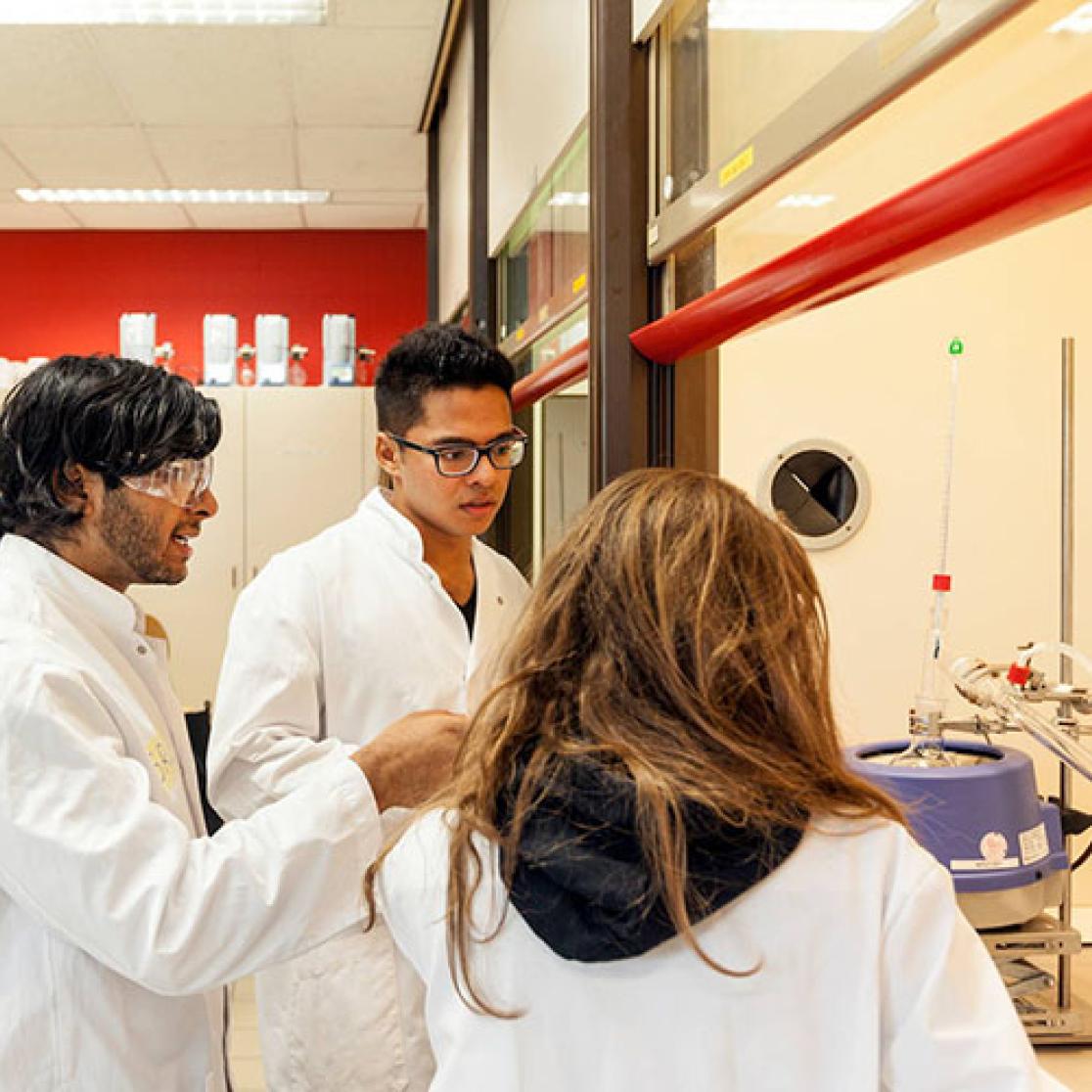
International community & cross-border mobility
We believe it is of the utmost importance to create a welcoming atmosphere and to facilitate the rapid integration of the international members of our community, both students and staff. We do this through targeted social activities, buddy programmes and additional services such as visa support and language courses.
We also work to promote the cross-border mobility of our students and staff and encourage participation in exchange programmes with our partner universities. In addition, many of our alumni work abroad, and we do our best to keep them connected with the UM community.
More about our services for international & exchange students
More about our international staff & cross-border mobility
More about our alumni in the world
